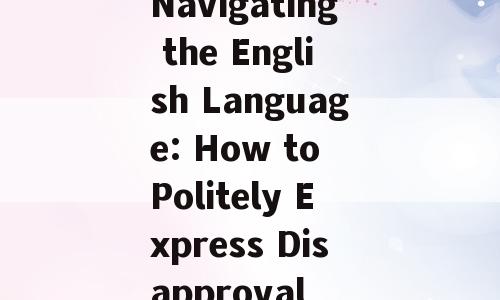In the world of communication, expressing one's disapproval or frustration can be a delicate matter, especially when it comes to using language that is considered offensive. If you're looking for a way to politely convey a sense of di *** elief or anger without resorting to profanity, understanding how to express the word "idiot" or its equivalents in English is crucial. Let's delve into the nuances of this challenge.
Understanding the Context
The word "idiot" in English is a noun that refers to a person who is considered foolish, dull, or slow-witted. However, it's important to note that the term can be highly offensive and is generally considered impolite in most social and professional contexts. Therefore, it's essential to find more nuanced ways to express similar sentiments without offending others.
Polite Alternatives
When you need to express a sense of di *** elief or frustration in English without using the word "idiot," here are some polite alternatives:
1、Incompetent: This term is often used to describe someone who is not skilled at their job or task, rather than a personal attack on intelligence.
2、Clumsy: This word can be used to describe a person's actions or decisions that are not well thought out or executed.
3、Unskilled: Similar to "incompetent," this term focuses on a lack of skill rather than intelligence.
4、Lackluster: This adjective is often used to describe something that is not impressive or lacks excitement, which can be applied to a person's performance or ideas.
5、Misguided: This term implies that someone is following a wrong path or has made poor decisions, without directly attacking their intelligence.
Avoiding the Offense
It's important to remember that even these alternatives can be perceived as offensive if used carelessly. Here are some tips to avoid offense:
Focus on the Behavior, Not the Person: When expressing disapproval, focus on the action or decision that caused concern, rather than the person's intelligence or character.
Use Constructive Language: Offer suggestions or solutions instead of critici *** . This shows that you are interested in improving the situation, not just pointing out flaws.
Be Mindful of Tone: The way you say something can be just as important as the words you choose. Ensure your tone is respectful and not confrontational.
Cultural Considerations
It's also important to be aware of cultural differences when using English. What might be considered polite in one culture could be seen as rude in another. For example, the term "dumb" is more commonly used in some English-speaking countries than in others, and its appropriateness can vary widely.
Conclusion
Navigating the English language to express disapproval without resorting to offensive language is a skill that can enhance communication in both personal and professional settings. By using polite alternatives and being mindful of context and cultural differences, you can convey your message effectively while maintaining respect and professionali *** . Remember, the goal is not just to express your frustration, but to do so in a way that fosters understanding and constructive dialogue.















还没有评论,来说两句吧...